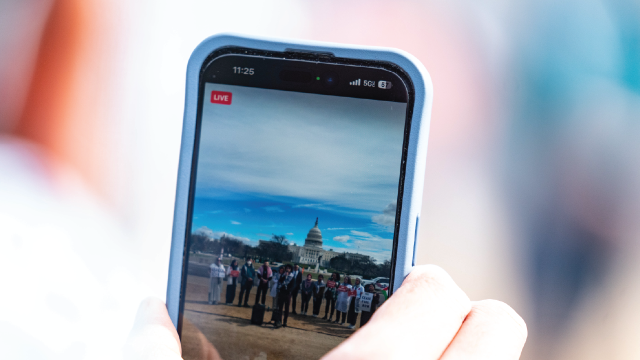
For some, social media is a place to engage with politics, whether it’s to share information about protests or learn about candidates for office. But how valuable do Americans think social media is for them personally to get involved in issues and express their political opinions?
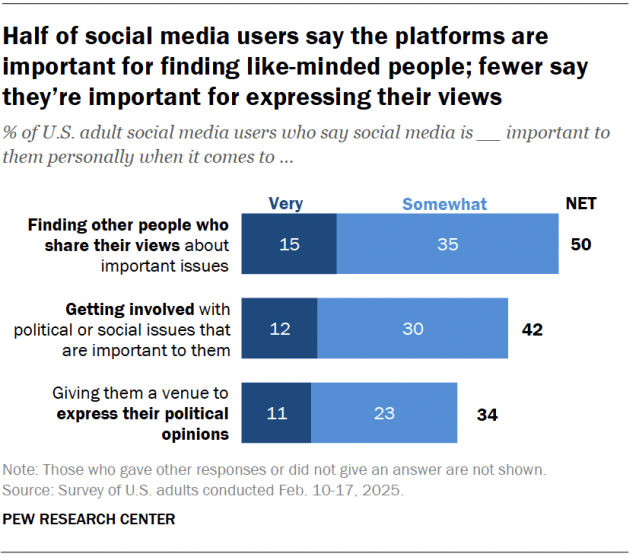
Half of U.S. adult social media users say social media is very or somewhat important for them when it comes to finding others who share their views about important issues, according to a Pew Research Center survey conducted in February.
Smaller shares say social media is important for getting involved with political or social issues that are important to them (42%) or giving them a venue to express their political opinions (34%).
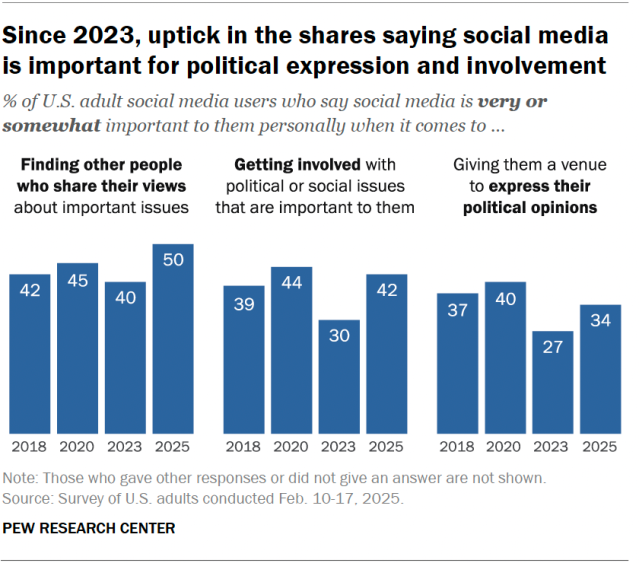
More users see social media as important for each of these reasons than when we last asked this question in 2023. And the share who say it’s important for finding like-minded people is at its highest since 2018.
However, views of social media’s importance for getting involved with personally important issues or expressing political opinions are on par with or slightly lower than in 2018 and 2020.
By age
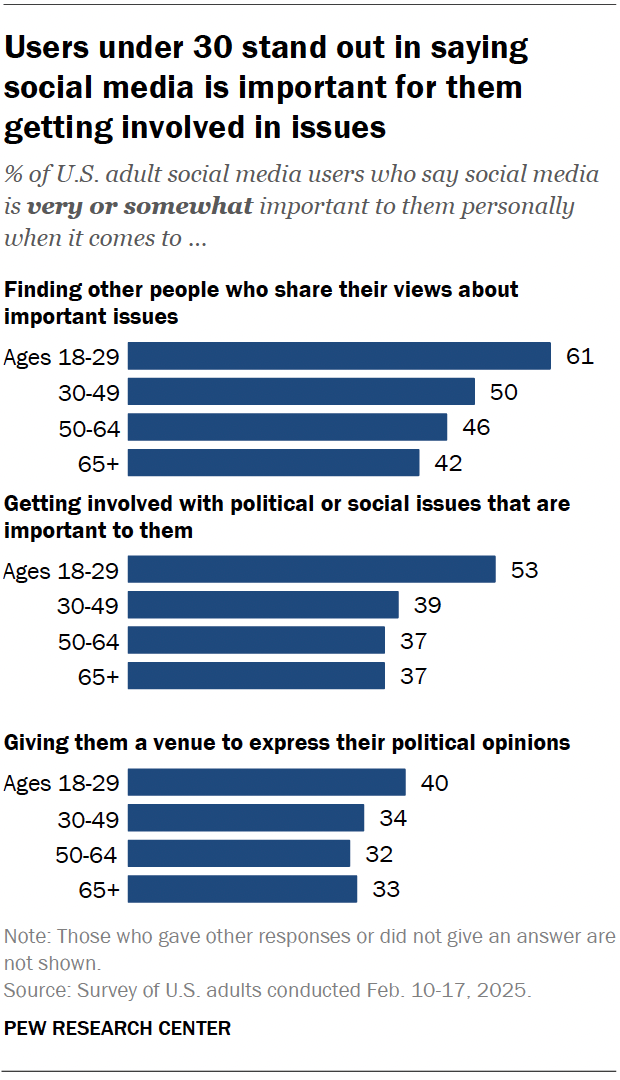
Younger adults on social media are much more likely than older users to say social media is important for finding like-minded people and getting involved.
For example, 53% of users under 30 say social media is personally important for getting involved with issues that are meaningful to them. About four-in-ten of those 30 and older say the same.
There are smaller age differences when it comes to social media’s importance for expressing political opinions. Still, users under 30 remain more likely to value it for this.
By race and ethnicity
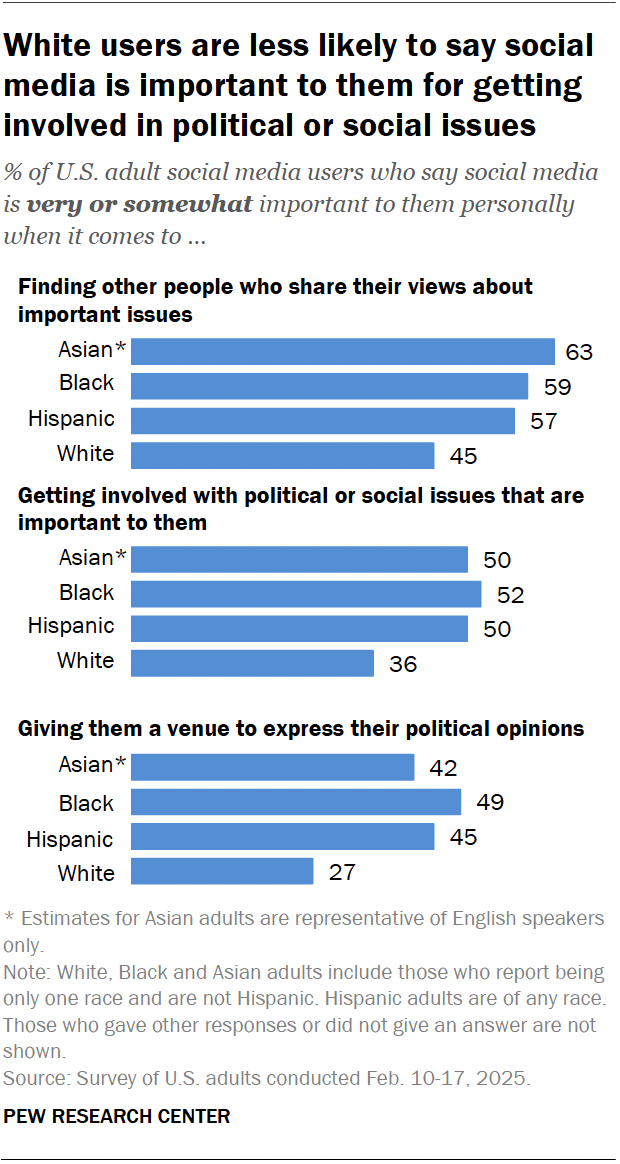
Asian, Black and Hispanic users are more likely than White users to find social media personally important for all three reasons we asked about. This was also true in 2023.
For example, roughly six-in-ten Asian, Black and Hispanic users say today that these platforms are at least somewhat important to them for finding others who share their views. By comparison, 45% of White adults say the same.
By party
Among those who use social media, Democrats and Democratic leaners are more likely than Republicans and GOP leaners to say social media is important for:
- Getting them involved with political or social issues (47% of Democrats vs. 37% of Republicans)
- Finding others who share their views about important issues (54% vs. 47%)
- Having space to express their political opinions (38% vs. 32%)
Views of social media’s impact on political discourse
Overall, Americans see both positive and negative impacts of social media on social and political discourse.
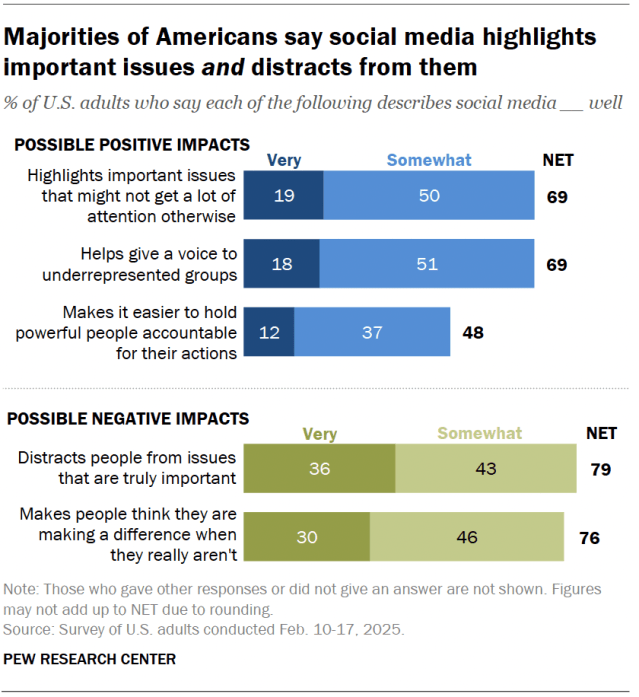
We asked U.S. adults overall – not just social media users – how well certain statements describe social media. A large majority (79%) say the phrase “social media distracts people from issues that are truly important” describes the platforms at least somewhat well. About three-quarters (76%) also say this about the statement “social media makes people think they are making a difference when they really aren’t.”
However, notable shares also see positive impacts. About seven-in-ten say that social media highlights important issues and helps give a voice to underrepresented groups (69% each).
There are some slight differences in these figures from when we first asked this question in 2018.
For instance, 48% of U.S. adults currently say that social media makes it easier to hold people in power accountable, down from 56% in 2018. The shares who say social media helps give a voice to underrepresented groups and highlights important issues have increased slightly. Americans have also grown more likely to say it makes people think they are making a difference when they aren’t.
By party over time
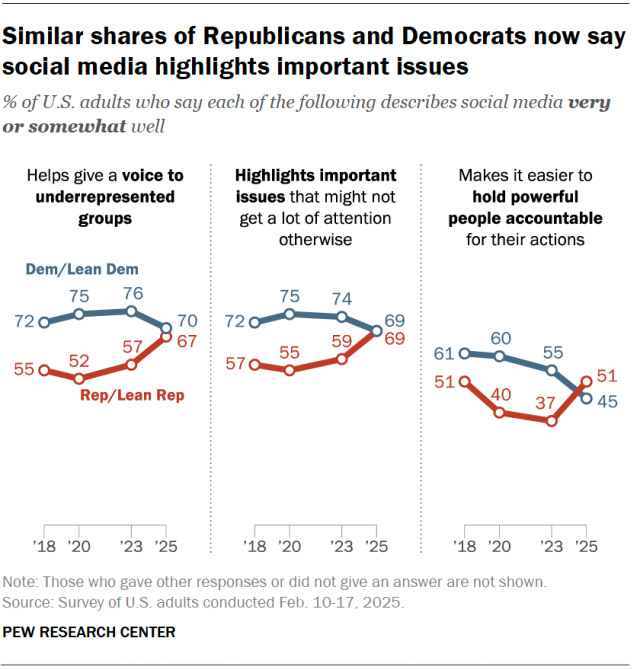
Republicans and Democrats see social media’s impact on political discourse more similarly today than they did in the past.
For instance, 72% of Democrats and 57% of Republicans said in 2018 that social media highlights important issues that might not otherwise get attention. However, 69% of both Democrats and Republicans say this now.
Partisan gaps have narrowed for the two negative impacts we asked about as well. In 2018, 76% of Republicans and 67% of Democrats said that social media makes people think they are making a difference when they really aren’t. Today, 75% of Republicans and 77% of Democrats say this.
Additionally, in 2018, 74% of Democrats and 81% of Republicans said social media distracts from important issues. Now, about eight-in-ten Democrats (80%) and Republicans (79%) say this.
Republicans and Democrats throughout this analysis include independents who lean toward each party.
By age
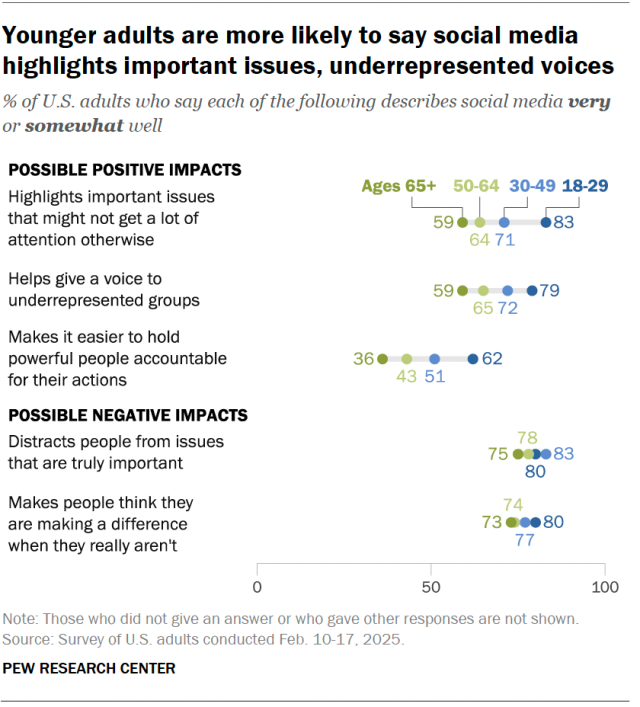
Across all age groups, majorities say social media platforms highlight important issues and help give a voice to underrepresented groups. This is true for the two negative impacts we asked about as well.
However, there are some differences by age. Adults under 30 are more likely than older adults to say social media has the three positive impacts.
For instance, 62% of those under 30 say social media makes it easier to hold powerful people accountable. Among those 65 and older, 36% say the same.
The age differences are more modest for the negative impacts than the positive ones.
Note: Here are the questions used for this analysis, the topline and the survey methodology.
